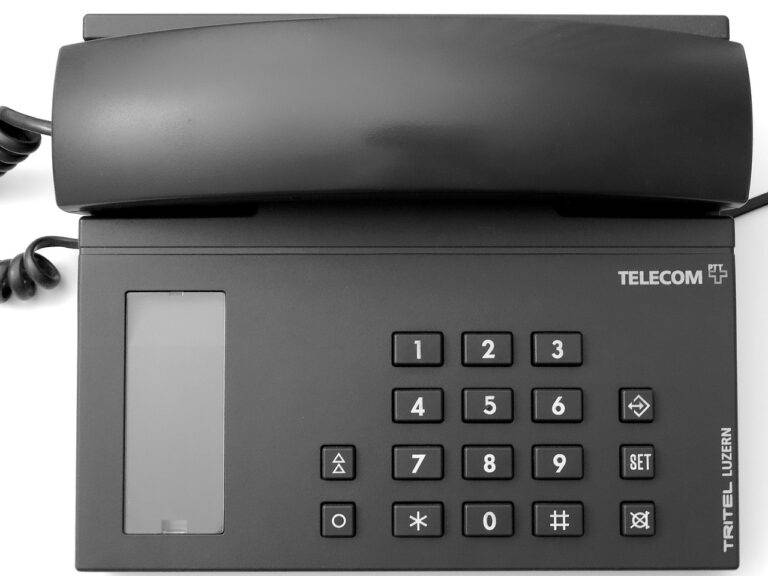Leveraging Technology for Accounting Education
bit bhai 9, radhe exchange, lotus365.win login: Leveraging Technology for Accounting Education
In today’s digital age, technology plays a critical role in transforming the way we learn and teach. Accounting education is no exception, as educators and students alike are finding new ways to incorporate technology into the classroom. From online courses to virtual simulations, there are countless tools and resources available to enhance the accounting learning experience.
Technology has the power to make accounting education more interactive, engaging, and relevant to real-world scenarios. By leveraging technology, accounting educators can create a dynamic learning environment that prepares students for the challenges of the modern workplace.
Here are some ways in which technology can be used to enhance accounting education:
1. Online Courses and Learning Management Systems
Online courses have become increasingly popular in recent years, offering students the flexibility to learn at their own pace and on their own schedule. Learning management systems, such as Moodle and Blackboard, provide a platform for educators to deliver course materials, assignments, and assessments online. These tools make it easier for students to access resources, collaborate with peers, and track their progress.
2. Virtual Simulations and Case Studies
Virtual simulations and case studies allow students to apply their accounting knowledge in a realistic, interactive setting. These tools help students develop problem-solving skills, critical thinking abilities, and decision-making capabilities. By immersing students in real-world scenarios, virtual simulations and case studies make accounting concepts more tangible and relatable.
3. Accounting Software and Tools
Accounting software, such as QuickBooks and Xero, provide students with hands-on experience using industry-standard tools. By using accounting software in the classroom, students can gain practical skills that are directly applicable to their future careers. These tools also allow students to analyze financial data, create reports, and make informed business decisions.
4. Online Collaboration Platforms
Online collaboration platforms, like Google Workspace and Microsoft Teams, facilitate communication and teamwork among students and educators. These platforms enable students to collaborate on group projects, share resources, and engage in discussions outside of the traditional classroom. By fostering collaboration, online platforms enhance the learning experience and help students develop teamwork skills.
5. Mobile Learning Apps
Mobile learning apps make it easy for students to access course materials, practice exercises, and study resources on the go. These apps provide a convenient way for students to review accounting concepts, quiz themselves on key topics, and stay engaged with their coursework. By incorporating mobile learning apps into their education, students can make the most of their study time and reinforce their understanding of accounting principles.
6. Virtual Reality and Augmented Reality
Virtual reality (VR) and augmented reality (AR) technology offer immersive experiences that can enhance accounting education. VR and AR simulations enable students to visualize complex accounting concepts in a 3D environment, making learning more interactive and engaging. By integrating VR and AR into their curriculum, educators can provide students with a unique and memorable learning experience.
7. Gamification
Gamification involves using game-like elements, such as points, badges, and leaderboards, to motivate and engage students in their learning. By gamifying accounting education, educators can make learning more fun and interactive. Gamification encourages students to set goals, track their progress, and compete with their peers, ultimately leading to increased engagement and improved learning outcomes.
8. Personalized Learning
Technology enables personalized learning experiences tailored to individual student needs and preferences. Adaptive learning platforms, such as Khan Academy and Cerego, use algorithms to customize course materials and activities based on each student’s learning style and pace. By providing personalized feedback and recommendations, these platforms help students grasp difficult concepts and stay motivated throughout their studies.
9. Data Analytics and Business Intelligence
Data analytics and business intelligence tools give students the opportunity to analyze financial data, identify trends, and make data-driven decisions. By incorporating these tools into their curriculum, educators can help students develop critical analytical skills that are in high demand in the accounting profession. Data analytics and business intelligence also provide students with valuable insights into the role of technology in financial reporting and decision-making.
10. Social Media and Networking
Social media platforms, such as LinkedIn and Twitter, can be valuable resources for accounting students to connect with industry professionals, stay updated on industry news, and build their professional networks. Educators can incorporate social media into their curriculum to encourage students to engage with the accounting community, participate in online discussions, and showcase their skills and accomplishments.
FAQs:
Q: How can technology improve the learning experience for accounting students?
A: Technology can improve the learning experience for accounting students by making education more interactive, engaging, and relevant to real-world scenarios. Online courses, virtual simulations, accounting software, and mobile learning apps are just a few examples of how technology can enhance the learning experience for students.
Q: What are some challenges of integrating technology into accounting education?
A: Some challenges of integrating technology into accounting education include the cost of implementing new technologies, the need for training and support for educators and students, and concerns about data security and privacy. Additionally, some students may struggle with technology-related issues, such as access to reliable internet connection or technical difficulties with software.
Q: How can educators stay up to date with the latest technology trends in accounting education?
A: Educators can stay up to date with the latest technology trends in accounting education by attending conferences, workshops, and webinars related to technology in education. They can also join professional organizations, participate in online communities, and follow industry publications to stay informed about new technologies and best practices in accounting education.







